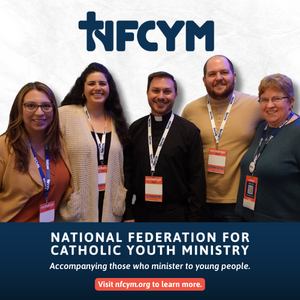By Jessica Biser, Mercy Volunteer Corps, serving in Savannah, Georgia
 |
| Mercy Volunteer Jessica Biser cares for a patient at a clinic in Savannah, Georgia. |
You’re a 35 year old woman from a corrupted and poverty-stricken village in Mexico. You have three kids with hungry bellies but not enough food despite all your efforts. You’ve heard all about the “American Dream” and decide it is time for you to experience it for yourself in order to support your family. After a grueling trip, you arrive in the U.S., a place glowing with big buildings and fancy people who speak a language you don’t quite understand. Shortly after arriving, you become sick, most likely from traveling in close proximity to others. You arrive at your appointment to find a doctor who towers over you like a giant oak tree and an interpreter who speaks incomplete Spanish. After your general exam, you begin to mention dizzy spells you have been experiencing recently but the doctor looks annoyed. She doesn’t seem to care about your complaints as her attention moves to her phone. You’re unsure what an “anti-inflammatory” or “steroid injection” is and don’t exactly understand how to take your meds, but choose not to ask any more questions to this impatient doctor. You feel out of place, but remind yourself that you came here for your family you left behind in Mexico; they need your help, so you envision them and push forward.
Unfortunately, this is what immigrants experience and is more common than we wish to believe. I know because I have seen it while volunteering at a free clinic in Savannah, GA. As the interpreter, I notice the patient’s uneasiness when the doctor rolls her eyes after more than one complaint. I see the provider standing in a power stance as the patient cowers in the corner timidly. I hear the terminology used and witness the blank stares in response. But the patients have no other choice. Many Latinos flee their country out of fear, hunger, poverty or a combination of the three. Either way, they come to improve their lives, but when faced with healthcare, they have nowhere to go. Our system is imperfect and seems to create an uphill battle for undocumented Hispanic citizens with cultural barriers forming hurdles along the way. The two cultural barriers that were universal among patients I served were language and health literacy.
Language is an obvious issue. If you don’t speak the native language, how are you going to express your health concerns? Of course, you can use an interpreter but you’re placing a lot of trust and faith into a stranger to efficiently communicate and understand your problems. Unless you have family or friends who can speak English, you’re always relying on a stranger to be your voice about your own health. Language barriers are the first contributor in a patient’s removal from healthcare, literacy being the second. Doctors commonly use medical jargon that doesn’t make much sense to anyone but themselves. When you have language as an added obstacle to literacy, it’s like giving these patients braille and telling them to read it with their hands tied behind their back. It simply isn’t fair to send them on such an obstructed path for something as serious as their health. To make matters worse, they’re too intimidated to ask clarifying questions to the doctor directly so they remain in the dark about most of their care. At this point, after stumbling over two hurdles, the majority of the patients are now twice removed from their care, so distant from connecting with the physician that the whole visit feels almost useless to them. Without a bilingual physician who will take time to explain medical terminology to patients, these problems will persist.
This experience motivates me to provide compassionate care to patients in an open environment. It will remind me, as a physician, to be empathetic, understanding and to really find where the patient stands in all aspects of their life so I can meet them at their level. I cannot change our healthcare system, but I can change my interactions with these individuals and advocate for a higher quality of care for Latino immigrants. My hope as a future physician is to eliminate cultural barriers by providing care to Hispanic patients in a comfortable environment where the patients feel they can express their concerns freely without judgment. Not only has the Lord called me to do his service, but specifically to be his hand and heart in medicine for those who otherwise may not receive care. I would like to end with a poem representation of the immigrants I have been referring.
Will you accept my differences?
| The Mercy Volunteer Corp. teaches the support staff the art of yoga. |
The ones you see so clearly
Of language, ethnicity, and education
Contrasting those of your own
Shift your perspective and you’ll see we’re the same
Experiencing pain, love, loss and joy
My knees wear bruises of forgiveness
My skin dressed in stains of suffering
For I have left my country, my home
Seeking your support and guidance
But instead I’m seen as rotten fruit
Unpleasant and useless
My hands reach for approval
My ears listen for hope
My heart screams for love
My eyes seek justice
My mouth remains shut
Because nobody can hear me
I’m willing to give you my hands scarred with labor
To give my mind etched with experience
To give my heart overflowing with gratitude
The question is,
Are you willing to move past your stigmas?
Are you willing to accept?
To learn more about Mercy Volunteer Corps, click here!


 Thousands of faith-based service opportunities can be at your fingertips with the RESPONSE. Download the latest edition today!
Thousands of faith-based service opportunities can be at your fingertips with the RESPONSE. Download the latest edition today!
